Theater 2015-16: The binding threads are classic in Court’s pursuit of Greek and modern
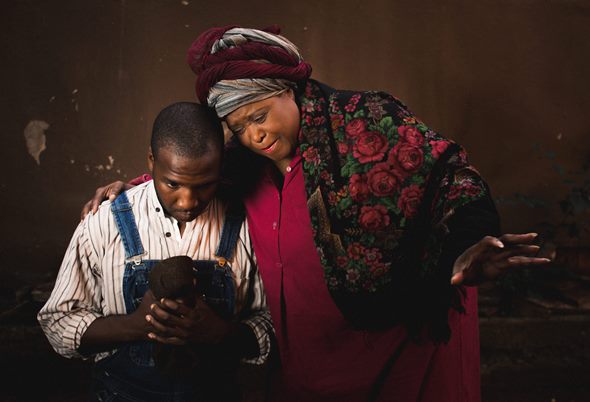 Tenth in a series of season previews: August Wilson’s “Gem of the Ocean” and Eugene O’Neill’s “Long Day’s Journey” are in the mix with Aeschylus’ “Agamemnon.” Curtain up Sept. 19.
Tenth in a series of season previews: August Wilson’s “Gem of the Ocean” and Eugene O’Neill’s “Long Day’s Journey” are in the mix with Aeschylus’ “Agamemnon.” Curtain up Sept. 19.
By Lawrence B. Johnson and Nancy Malitz
They jump off the schedule like towering peaks, the three classic plays that punctuate the 2015-16 season at Court Theatre. The playwrights alone are names to conjure with: Aeschylus and Eugene O’Neill and August Wilson.
Court’s 61st season opens with the company’s first staging of Wilson’s “Gem of the Ocean,” the concept-setting first play in his so-called Pittsburgh cycle of dramas that frame the urban African-American experience decade by decade through the 20th century.
 Then it’s an instant turn to the second part of a world-premiere trilogy, new translations by Court’s founding artistic director Nicholas Rudall of three plays that trace the fall of the House of Atreus. After launching the series last season with Euripides’ “Iphigenia in Aulis,” Court picks up the thread with Aeschylus’ “Agamenmon” – and finishes in 2016-17 with Sophocles’ “Electra.”
Then it’s an instant turn to the second part of a world-premiere trilogy, new translations by Court’s founding artistic director Nicholas Rudall of three plays that trace the fall of the House of Atreus. After launching the series last season with Euripides’ “Iphigenia in Aulis,” Court picks up the thread with Aeschylus’ “Agamenmon” – and finishes in 2016-17 with Sophocles’ “Electra.”
“We all have a vague sense of Agamemnon, just as we sort of know Helen of Troy,” says Court artistic director Charles Newell. “This play tells us a great deal about an iconic figure. Watching it is an intense experience, visceral as well as emotional.”
Later this season, O’Neill’s “Long Day’s Journey Into Night” affords the opportunity to see the work of one master playwright through the eyes of another when David Auburn directs. Court produced Auburn’s “Proof” two years ago.
“David saw it and was most complimentary,” says Newell. “We got to talking about plays we both loved, and ‘Long Day’s Journey’ came up. The way David talked about the play cracked open some of my assumptions. He sees an amazing speed and sharpness of thought in it, but within a framework that’s claustrophobic, tight and small. He’s getting away from layers of tradition and digging back into the essence of the play itself.”
The season’s two remaining plays can make their own classic claims: Terry Teachout’s “Satchmo at the Waldorf” offers a backstage look at one of the greatest jazz musicians, and Richard Bean’s “One Man, Two Guvnors” updates Carlo Goldoni’s 18th-century commedia dell’arte romp “Servant of Two Masters.”
The 2015-16 season in brief:
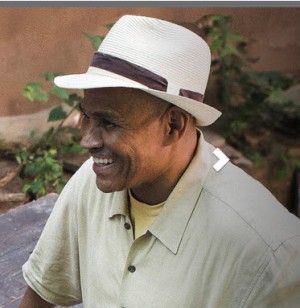 “Gem of the Ocean” by August Wilson (Sept. 19-Oct. 11): In this fantastical story of freedom, justice and redemption, a new century has dawned in America, but the shadow of slavery’s legacy lingers. As a city desperate for freedom descends into chaos, a murderer arrives on the doorstep of Ester Tyler’s Pittsburgh home. Known as a cleanser of souls, Ester must take this stranger on a spiritual journey of healing and renewal to the mythical City of Bones. Court resident artist Ron OJ Parson will direct his seventh Wilson play for Court. “In its connection to spirituality, ‘Gem of the Ocean’ is foundational to the Wilson canon,” says Newell. “His plays resonate with deep humanity, and we return to them again and again to learn more about ourselves and each other.”
“Gem of the Ocean” by August Wilson (Sept. 19-Oct. 11): In this fantastical story of freedom, justice and redemption, a new century has dawned in America, but the shadow of slavery’s legacy lingers. As a city desperate for freedom descends into chaos, a murderer arrives on the doorstep of Ester Tyler’s Pittsburgh home. Known as a cleanser of souls, Ester must take this stranger on a spiritual journey of healing and renewal to the mythical City of Bones. Court resident artist Ron OJ Parson will direct his seventh Wilson play for Court. “In its connection to spirituality, ‘Gem of the Ocean’ is foundational to the Wilson canon,” says Newell. “His plays resonate with deep humanity, and we return to them again and again to learn more about ourselves and each other.”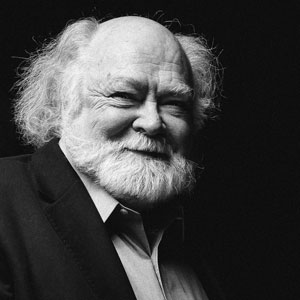 “Agamemnon” by Aeschylus (World premiere of a new adaptation by Nicholas Rudall, Nov. 14-Dec. 6): This is the second installment in Court’s three-year cycle of Greek classic plays dealing with the House of Atreus. Ten war-torn years have passed since the Greek fleet sailed from the shores of Aulis on winds conjured by the goddess Artemis in exchange for the bloody sacrifice of King Agamemnon’s eldest daughter, Iphigenia. Inside the walls of Argos, Clytemnestra, wife of the returning king, plots a bloody welcome to a house torn apart by horror and sorrow. Actors Sandra Marquez (Clytemnestra) and Mark Montgomery (Agamemnon) continue in the roles they played last season in Euripides’ “Iphigenia in Aulis.” Newell will direct.
“Agamemnon” by Aeschylus (World premiere of a new adaptation by Nicholas Rudall, Nov. 14-Dec. 6): This is the second installment in Court’s three-year cycle of Greek classic plays dealing with the House of Atreus. Ten war-torn years have passed since the Greek fleet sailed from the shores of Aulis on winds conjured by the goddess Artemis in exchange for the bloody sacrifice of King Agamemnon’s eldest daughter, Iphigenia. Inside the walls of Argos, Clytemnestra, wife of the returning king, plots a bloody welcome to a house torn apart by horror and sorrow. Actors Sandra Marquez (Clytemnestra) and Mark Montgomery (Agamemnon) continue in the roles they played last season in Euripides’ “Iphigenia in Aulis.” Newell will direct.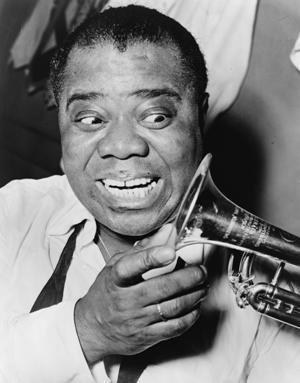 “Satchmo at the Waldorf” by Terry Teachout (Midwest premiere, Jan. 16-Feb. 7, 2016): After one of his final performances, Louis Armstrong retires backstage and begins to reminisce about his incredibly successful career. As the evening unfolds, he reveals an intimate, unknown portrait of the man behind the trumpet and the ever-evolving struggle to live with dignity as a black musician in a white world. The story is told through the voice of a single actor playing both Armstrong and his Jewish manager Joe Glaser, bringing to life an emotional journey of deep friendship and its tragic destruction. “It’s not simply ‘here’s Louis Armstrong’s life,’” says Newell. “It’s a moving journey set against the tragic loss of a friend. We see the great musician as a human being, as we’ve never seen him before.”
“Satchmo at the Waldorf” by Terry Teachout (Midwest premiere, Jan. 16-Feb. 7, 2016): After one of his final performances, Louis Armstrong retires backstage and begins to reminisce about his incredibly successful career. As the evening unfolds, he reveals an intimate, unknown portrait of the man behind the trumpet and the ever-evolving struggle to live with dignity as a black musician in a white world. The story is told through the voice of a single actor playing both Armstrong and his Jewish manager Joe Glaser, bringing to life an emotional journey of deep friendship and its tragic destruction. “It’s not simply ‘here’s Louis Armstrong’s life,’” says Newell. “It’s a moving journey set against the tragic loss of a friend. We see the great musician as a human being, as we’ve never seen him before.”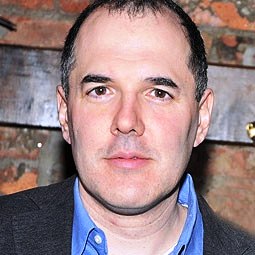 “Long Day’s Journey Into Night” by Eugene O’Neill (March 19-April 10, 2016): As a once bright morning fades slowly into a dreary fog of evening, in the Tyrone household members of the family collide within a web of long suffering, buried secrets and unspoken trauma. It is a searing depiction of family members struggling to heal themselves and to forgive each other. Directed by playwright David Auburn, author of “Proof.” Says Newell: “When we did ‘Proof,’ David saw it and most complimentary. We got talking about plays with both loved, and ‘Long Day’s Journey’ came up. The way David talked about the play cracked open some of my assumptions. He sees an amazing speed and sharpness of thought in it – within a concept that’s claustrophobic, tight and small. He’s getting away from layers of tradition and digging back into the essence of the play itself.”
“Long Day’s Journey Into Night” by Eugene O’Neill (March 19-April 10, 2016): As a once bright morning fades slowly into a dreary fog of evening, in the Tyrone household members of the family collide within a web of long suffering, buried secrets and unspoken trauma. It is a searing depiction of family members struggling to heal themselves and to forgive each other. Directed by playwright David Auburn, author of “Proof.” Says Newell: “When we did ‘Proof,’ David saw it and most complimentary. We got talking about plays with both loved, and ‘Long Day’s Journey’ came up. The way David talked about the play cracked open some of my assumptions. He sees an amazing speed and sharpness of thought in it – within a concept that’s claustrophobic, tight and small. He’s getting away from layers of tradition and digging back into the essence of the play itself.”- “One Man, Two Guvnors” by Richard Bean, adapted from Carlo Goldoni’s 18th–century commedia dell’arte play “Servant of Two Masters” (Midwest premiere, May 21-June 12, 2016): Set in 1963 on the coast of Brighton (and underscored by a live skiffle band), this rollicking play with music transforms Goldoni’s classic farce into modern comedy full of satire and slapstick. It’s a wild jaunt fraught with cross-dressing twins, dead fiancés, crooked lawyers and general buffoonery. “I’ve learned that when something really scares me, it’s something I should do,” says Newell, who will direct. “I came to this knowing nothing about commedia dell’arte, so this is me taking a huge leap of faith – off the cliff.”
Getting there:
Founded in 1955 “to create innovative productions of classic plays that are thought-provoking, character-driven and theatrically enduring,” Court Theatre is located at 5535 S. Ellis Ave. in Hyde Park on the University of Chicago campus.
Related Links:
- Court Theatre’s official website: CourtTheatre.org
- Review of “The Good Book” at Court: Read it at ChicagoOntheAisle.com
- Interview with Hollis Resnik as Miriam in “The Good Book”: Read it at ChicagoOntheAisle.com
- Review of “Water by the Spoonful” at Court: Read it at ChicagoOntheAisle
- Review of “Seven Guitars” at Court: Read it at ChicagoOntheAisle.com
- Review of “Skylight” at Court: Read it at ChicagoOntheAisle.com
- Review of “Jitney” at Court: Read it at ChicagoOntheAisle.com
Tags: Aeschylus, August Wilson, Charles Newell, Court Theatre, David Aubun, Eugene O'Neill, Nicholas Rudall, Richard Bean, Ron OJ Parson, Terry Teachout, Timothy Edward Kane













4 Pingbacks »